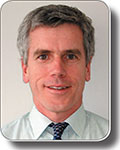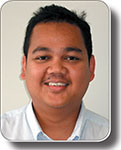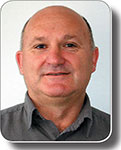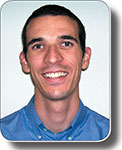Technology, investment and people: a process for extending the life of the Central Fields Complex, Gippsland Basin
Michael Gross A , Abdul Aziz Abdul Rahim A , Erin Broad A , Dean Grant A and Brad Hargreaves AEsso Australia
The APPEA Journal 48(1) 133-152 https://doi.org/10.1071/AJ07009
Published: 2008
Abstract
The greater Central Fields complex of the Gippsland Basin, comprised of the Halibut, Fortescue and Mackerel fields, has produced 1.7 billion barrels of oil from four platforms in 37 years of production.
After the initial development drilling phases from Halibut (1969–70), Mackerel (1977–80), Fortescue (1983–86) and Cobia (1983–85) platforms and five in-fill drilling campaigns (1992–2003) it is still possible to target unswept highly productive multi-darcy reservoirs along with bypassed zones in lower quality sands.
During 2007, a six well program was completed from the Halibut platform using an upgraded workover rig that added significant volumes with combined initial rates of more than 16,000 barrels of oil per day. In addition, despite being conductor limited, the program tested strategic concepts and demonstrated significant remaining potential in a variety of reservoir qualities and depositional environments.
The outstanding success of the 2007 program was based on an up-to-date geologic framework, key technical advances, ongoing investment commitment and multi-discipline integration across workplace functions. Advancements in 3D seismic data quality and analyses, reservoir surveillance, innovative slot recovery and data integration all played a role in the success of the program.
Building on the success elements of the 2007 program, a higher capacity rig has been mobilised and upgraded to apply new drilling technologies to access the remaining potential and help mitigate basin decline.

Michael Gross graduated from Newcastle University in 1982 with a BSc (Hons) majoring in geology and mathematics. With 25 years of experience with ExxonMobil affiliated companies he has worked exploration, development and production projects from around the world. Numerous assignments in Australia, Norway and Houston has given Michael the opportunity to work on major projects from Gippsland Basin, Gulf of Mexico, offshore Sakhalin Island, south Texas, offshore Angola, Niger Delta and Equatorial Guinea, Turkmenistan and Uzbekistan, the North Sea and mid-Norway. He also worked for three years in a core technology group within the heritage Exxon organisation in Houston. He returned to Melbourne in 2005 and is now assigned to the Gippsland Production Geoscience group as a senior geoscientist. Member: PESA, SEG. m.d.gross@exxonmobil.com |

Abdul Aziz Abdul Rahim graduated from University of Malaya with BSc in geology (Hons) in 1999 and a MSc in petroleum geosicence from the University Brunei Darussalam the subsequent year. Aziz joined Esso Production Malaysia Incorporated in 2000 and since then has worked on various mature and new field oil and gas developments in the Malay basin. In April 2006, he was transferred to Esso Australia Pty Ltd, a subsidiary of ExxonMobil Corp where he worked on North West Shelf Exploration. At present, Aziz is assigned as production geoscientist in Gippsland production responsible for the Halibut, Fortescue and Cobia in-fill drilling program. Member: Geological Society of Malaysia. |

Erin Broad graduated from The University of Adelaide in 2004 with a BChemEng (Hons 1st Class) and a Bachelor of Mathematical & Computer Science. She began with ExxonMobil Production Company a month later, where her first role involved reservoir surveillance of oil producing platforms in the Bass Strait, Victoria. Since joining the Petroleum Industry, Erin has been an active member of SPE and in this time has held committee positions within the Victoria and Tasmania Section, including her present position as Scholarship Co-coordinator. Member: Engineers Australia. |

Dean Grant is a mechanical engineering graduate from the University of Melbourne. He has had a 25-year career in the Australian oil industry working in a petroleum/reservoir engineering role for a range of companies and in most basins in Australia. Dean began his career with CSR Oil and Gas, subsequently moving to Alliance Oil Development and then Woodside Petroleum (Vamgas) before establishing his own reservoir engineering consulting business. He began consulting to Esso Australia in 1996 when he became involved in development planning work for the Bass Strait oil fields moving into a permanent role as a senior reservoir engineer in 2004. He is currently a member of SPE. |

Brad Hargreaves graduated from Monash University with BEng (Mechanical), BCom in 2002. He then joined ExxonMobil Production Company’s well engineering team supporting offshore operations in Bass Strait, Australia. He was involved with well integrity, sand control, workover/completion, subsea and jack-up operations. In 2006 he moved to the drilling group as a drilling engineer where he continues to provide planning and surveillance support for platform drilling operations in Bass Strait. |


